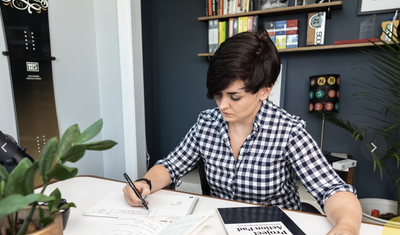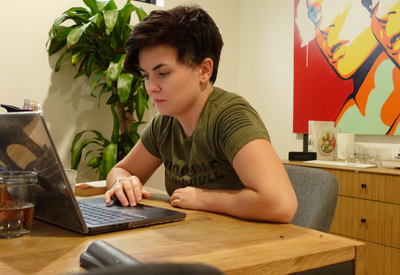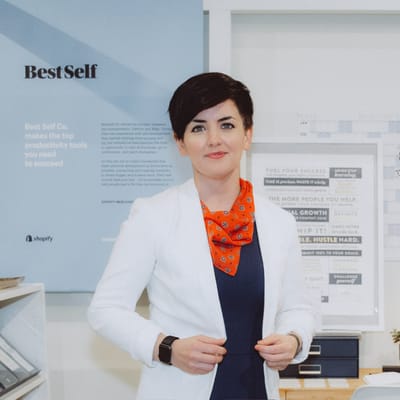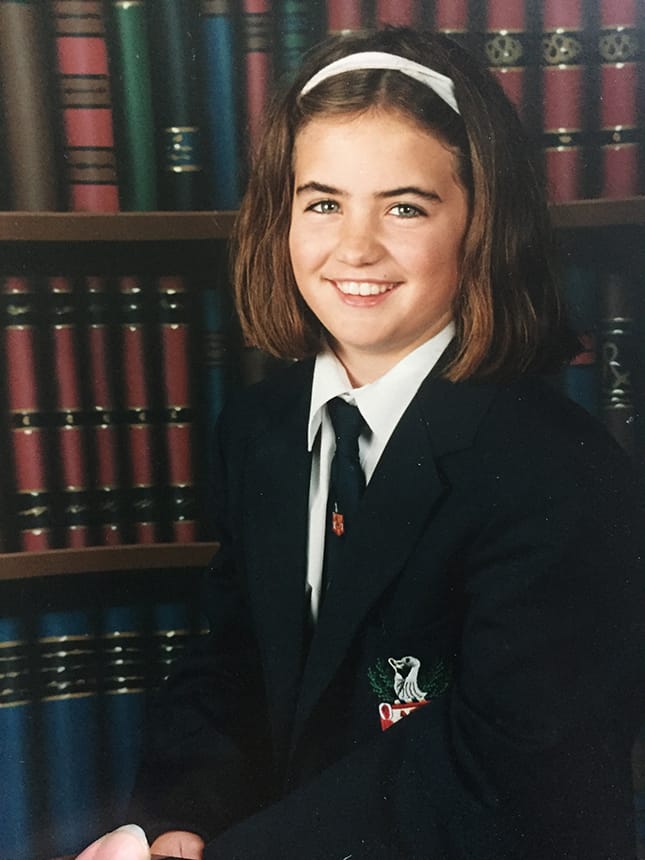
Have you ever wished you could go back to high school knowing everything you do now? Well, I kinda got to do that…
Recently I was invited back to give a talk at my old high school and share my journey since I left in 2005. The purpose was to impart any “wisdom” I had for some of the older students during Friday assembly.
*Cue the awkward high school picture*

I asked on Facebook what people wished they had known back when they were between 16 – 18 years old. I got some great responses from people…
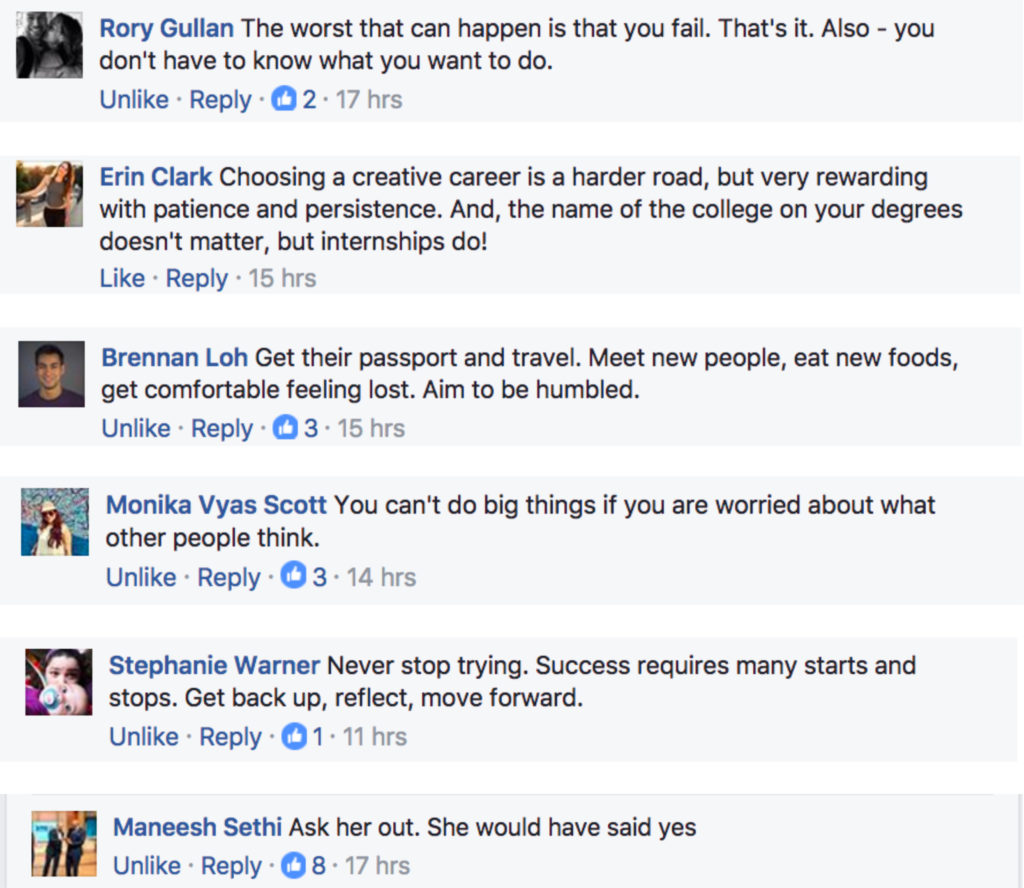
There were a bunch of awesome responses, you can see the whole post here.
3 Myths I Believed at School:
Myth: You have to know what you want to do for the rest of your life
Truth: Many of the jobs that exist now didn’t exist 10 years ago. Same as many jobs that exist now won’t exist in 10 years. You don’t need to have everything planned out, life happens, and technology changes but as long as you follow your interests while providing value/solving a world problem you’ll be fine.
Myth: My future depended on my GCSE/A-Level exam results
Truth: A few years from now you won’t even remember what your grades were, nor will anyone even care. I missed out on a grade I wanted in my last year at school which meant not getting into my first choice university. At the time I thought it was the end of the world… it wasn’t.
Myth: University was the ONLY choice
Truth: University is not for everyone and if you decide you don’t want to go, you are not a failure. In fact, many people do go to university only to waste time and rack up debt getting an education that won’t serve them in the job market. You do you. If you don’t want to be a doctor, lawyer, or profession that requires a degree then it’s optional.
My Journey
I believed I had to know what my career would be so when I was 16 I decided to be an architect, mainly because I was good at Physics and Art so Architecture just made sense. It was also a “serious career”… so of course my parents would be happy.
Then for the next 10 years I was on the “Architecture train”, never really exploring any other options, partly because I was busy with the constant workload of Architecture school, but mainly because I was scared that if I looked around and found something else I would get “off track” and have to start over.
The timeline of my life:

It was midway through 2012 when I realized that I was in a job that I couldn’t picture doing the rest of my life. When I looked at my bosses who were 20 years my senior and had their successful firm, I still didn’t want to end up there — and that was the best-case scenario.
I felt like I was experiencing a midlife crisis. It was at this point I started looking around at what other people were doing to see how I could pivot my life path:

Five to Thrive
These are the five things I started doing at that turning point in 2012 that led me to where I am now, and I shared these with the young students from my high school so they can get a headstart on them rather than wait 10 years as I did.
1. Find a Mentor
The best way to learn anything is to find someone who’s doing it and learn from them. If there’s something you think you want to do with your life, the best way to figure it out is to work for them and figure it out.
Find that person, bring them value and I would even recommend working for them for free if you have to. You’ll learn if you really want to do that thing, and if not you didn’t waste years at college on it – and if you do, they can probably help you get your foot in the door.
Takeaway: Life experience > university.
2. Never Stop Learning
Before 2012 I didn’t place learning high on my priority list. I had gone through school, gotten those all-important letters after my name, and thought that was it. University was complete and I thought I had learned all I needed.
Then in 2012 when I realized I wasn’t experiencing the life I wanted I picked up some books and educated myself on what else was possible. What were successful people doing that I should be doing? It took me 2 years of hustling on the side to begin figuring it out. I even made a commitment to read 22 books before I would allow myself to quit my job.
Takeaway: Life is about the journey, not the destination.
3. Build Good Habits
Successful people are the sum of the habits that they create for themselves. If you create a habit of going to the gym every day you’re going to be fit, same with if you read for 30 minutes every day you are going to be smarter.
Who do you want to be? What do you need to do every day to become that person? Start crafting the habits for success in order to level up to the person you want to become. It isn’t easy, but if you do what you’ve always done you’re going to get what you’ve always gotten.
Takeaway: How have your existing habits been working out for you so far?
4. Permission to Fail
Many unsuccessful people quit after failing something once, but failure is only the beginning of your journey to success as long as you don’t give up.
F.A.I.L = First Attempt In Learning
Each time you fail at something you should reflect, learn how you would do it differently, every day, and then try again. You only really fail or lose when you stop trying and stop learning from mistakes.
Before BestSelf Co I had 4 or 5 other business ventures, the majority of which didn’t last but I wouldn’t consider any of them failures as they each taught me something different.
Same with my business partner Allen who had some of his own. Had Allen and I never gone through those past “failures” we would not have had the skills to grow BestSelf Co into a seven-figure business in 1 year.
5. Don’t Afraid to be Different
To have an above-average life you have to do above-average things. Whether it’s getting a job you want or getting into the university you want, you need to stand out from the crowd.
At some point, everyone has good grades and people start to blend together, it’s your job to show why you’re different.

I recently went to a startup pitch event in Belgium, between 15–20 people were pitching their companies, many of them looking for investment. At some point, each 2-minute pitch started to blend in with the next, so even being 10% better than another pitch didn’t matter anymore.
That was until one presenter got up and stood out from the crowd, in fact, she went out of her way to embrace her difference through her presentation. Part of it was that she was the only female pitching the whole night, which she pointed out as it was this idea that sparked part of the story of her startup but it resonated with the audience.
I remember once she finished thinking ‘Well that was memorable’, not better, just different. When it came time to vote for the best pitch at the end, the audience voted her as the winner.
Why? She was different. Her company wasn’t necessarily better than the many others, it just stood out and resonated with everyone in the room.
In school we all try to fit in, not wanting to be different and draw attention to ourselves.
When I was back at school, I was the same, to the point where I had a small but semi-successful eBay business when I was 14 that I didn’t tell any of my classmates or school friends because I didn’t want to be considered “weird” or “different”.
Now I realize that there was no reason to be afraid, as once we’re out in the real world it’s these differences that will help you stand out from the crowd. It’s the “weirdos” that will create a dent in the universe and change the world — so don’t be afraid to be different.
Cue the famous Apple ad:
Become a subscriber receive the latest updates in your inbox.


